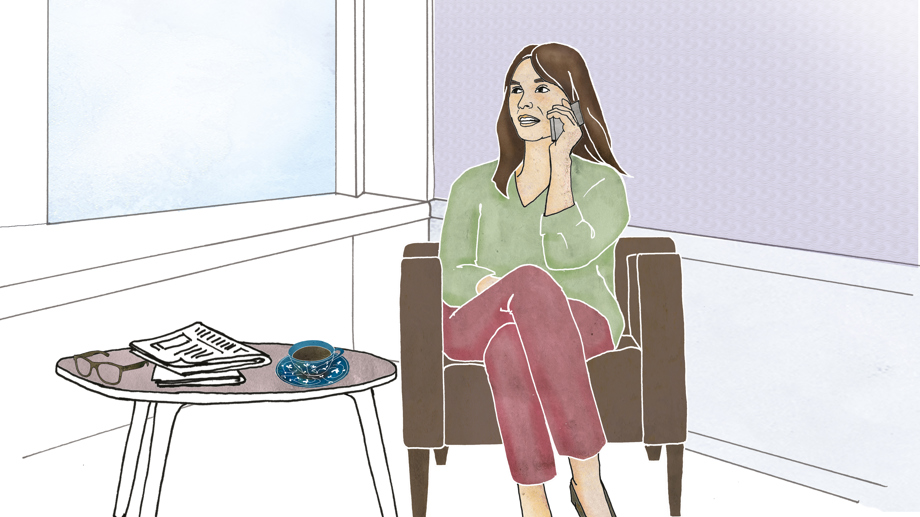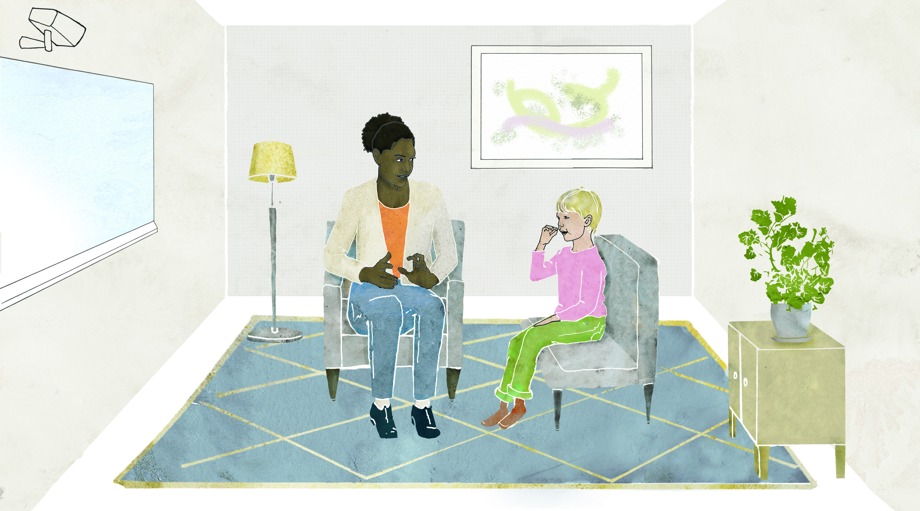For people who meet victims of terrorism
When a terrorist crime has occurred, both professional actors and people close to the victim – such as friends and family – have an important role to play. This section has information about personal and psychosocial support that professionals as well as non-professionals can provide following a terrorist crime.
A person who has witnessed a terrorist attack, or the aftermath of an attack, may suffer serious consequences. The reception and treatment of people who have experienced a serious incident such as a terrorist crime influences their possibilities of dealing with what they have experienced. Those who receive victims can give them information and help them with practical matters. They can convey feelings of care, safety and hope. In the longer term, people who receive victims can contribute to strengthening their self-confidence and trust in society. It’s useful, therefore, to know what constitutes fundamental personal support for people who have experienced a serious incident.
Family and close friends, medical care staff and others in the community who meet victims of terrorism can themselves suffer indirect consequences, for example as a result of what they see and hear in connection with the terrorist attack.

Current and reliable information
When a terrorist attack has occurred it can take some time before reliable and confirmed information about what happened becomes available. In a situation where not much information has yet become available, rumours of various kinds easily arise. This increases the risk that incorrect information spreads. Always apply source criticism when you are looking for and absorbing information, and make sure the information you have and pass on comes from reliable sources. Such sources include the website of the Swedish Police and MSB’s website krisinformation.se. The national information number 113 13 is also a good source of information about major accidents and crises. The 1177 Vårdguiden website can also provide important information following a terrorist crime.
During the acute phase
If you receive the victim during an acute phase of the incident, prioritise fundamental needs such as safety, care, warmth, food and liquids. Try to get a situation report and find out what the safety and security status is. Do not leave a person who has recently experienced a serious incident alone. If possible, provide support in a quiet and secluded place.
It’s important that you are calm when you receive a person who has experienced a serious incident. Avoid talking about the incident initially, letting the victim take the initiative to talk about if they want to.
Take the time to listen actively and carefully to what the victim wants to tell you. It is important to take the crime victim’s account seriously, so that they feel understood.
You can apply the principles for fundamental psychological and social crisis support, which are:
- promote security and a sense of safety
- promote calm
- promote affinity
- promote self-confidence and trust in society’s capacity
- promote a sense of hope.
Important to consider
The victim’s feelings of powerlessness can be mitigated if they get correct and clear information from authorities. Be frank about what you know and don’t know. Telling the victim what you don’t know is also information, but try to answer the questions you get as fully as possible. In an acute phase it may be difficult for the victim to absorb information. If possible, provide information on several occasions and in different forms, such as in speech and writing.
It’s important to make an individual needs assessment in order to understand the person’s particular needs and vulnerabilities and adapt support accordingly.
Reception of victims
You can make things easier for the victim by contacting authorities or insurance companies, for example. It can also be a good idea to help the victim deal with media contacts and to follow reports in the media. You can also help by just being there and listening. The Red Cross has advice on how you as a family member or friend can help someone in a crisis.
Personal support provided by non-professionals is important, but does not replace the treatment provided by professionals. You can help the victim get in touch with the health and medical services, a crisis support centre, or the social services – who have the ultimate responsibility for crime victims. Read more under the heading Support and help.
Varied needs
Victims of terrorism can feel particularly vulnerable since they are often random targets of an attack directed at society. They may therefore have difficulties understanding and accepting why they were targeted.
Bear in mind that there people who have survived or been affected by terrorist attacks who don’t like being called victims, because they don’t see themselves as victims but as survivors.
It’s important to respect people’s different reactions and their varied needs and experiences. Be attentive, so that you can give support adapted to the victim’s circumstances and with respect for their particular cultural, social, religious or other context.
Many people who have experienced a serious incident have a strong desire to talk, but this doesn’t apply to everyone. It’s good if the victim knows that it can often be a positive thing to talk about what has happened, and that many people may need help in the situation that has arisen. Respect the person’s wishes if they don’t want to talk, but tell them that you or someone else will be available later as well, and that they can get the support they want whenever it suits them.
Adults close to children
For parents and other adults close to children, an important task is to calm the child and make them feel as safe as possible. It’s also important to try to answer the child’s questions as best one can, and to try to help the child deal with their feelings. Be honest and clear about what you know, but adapt the information to the child’s level of development.
Children who have experienced a terrorist attack need to know that they may feel unwell even if weren’t injured, and that their everyday lives may also be affected by the incident, and be different, for a while. It’s a good idea to read the information in the brochure Till barn som varit med om en otäck händelse (For children who have experienced a horrible event) together with children. The brochure was produced by the Regional Knowledge Centre for Crisis and Disaster Psychology, Region Stockholm.
Some of the questions that you as an adult should be prepared to answer include: What happened? Where is my mother (father, sibling etc.)? Did anyone die? Why did it happen? What will happen after the incident? Will it happen again?
One piece of advice for adults who have or meet children with reactions to the incident is to try to get back as quickly as possible to everyday routines and to take the time to do enjoyable things together with the children.
Suggestions for how adults can speak to children about difficult events are available here:
The Ombudsman for Children in Sweden
Children’s rights include the rights to safety and security. The Ombudsman for Children in Sweden is the government agency that defends children’s and young people’s rights and can answer questions about them.

Support for those who help victims
If you help someone who has experienced a serious incident you may become emotionally affected yourself. It’s important that you get an opportunity to reflect on your reactions to receiving a person who is going through a severe crisis – for your own sake as well as to make sure you are able to receive the victim in the best possible way. Don’t hesitate to seek help and support in order to talk about your experiences. If receiving victims is part of your work you should turn to your employer in the first instance. You can also turn to the health and medical care services, who can provide crisis support. You can get in touch with a care provider by calling 1177 or visiting the 1177 Vårdguiden website.
Your support needs may have to do with:
- if you have a close relative, friend or colleague who is a victim
- how long you have been supporting a person experiencing a crisis
- if the incident has received a lot of media attention
- if you have seen or heard something that is hard to forget
- your previous experiences and current life situation.
The EU Centre of Expertise for Victims of Terrorism
The European Commission has a centre for expertise for victims of terrorism that provides information about support and rights in different countries to government agencies and organisations.